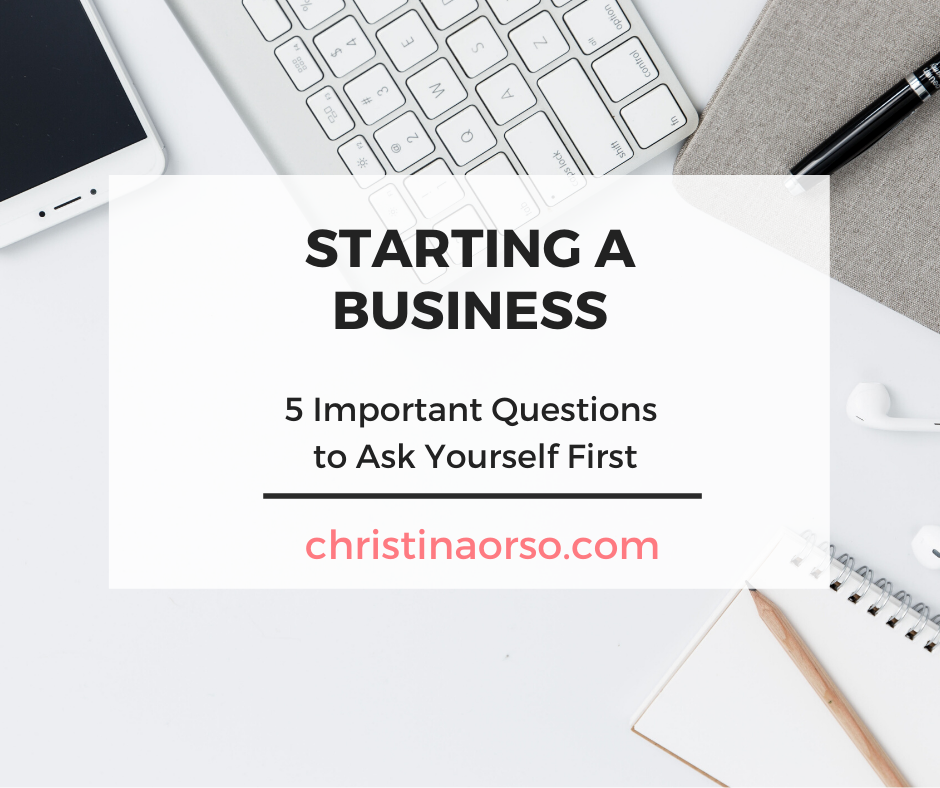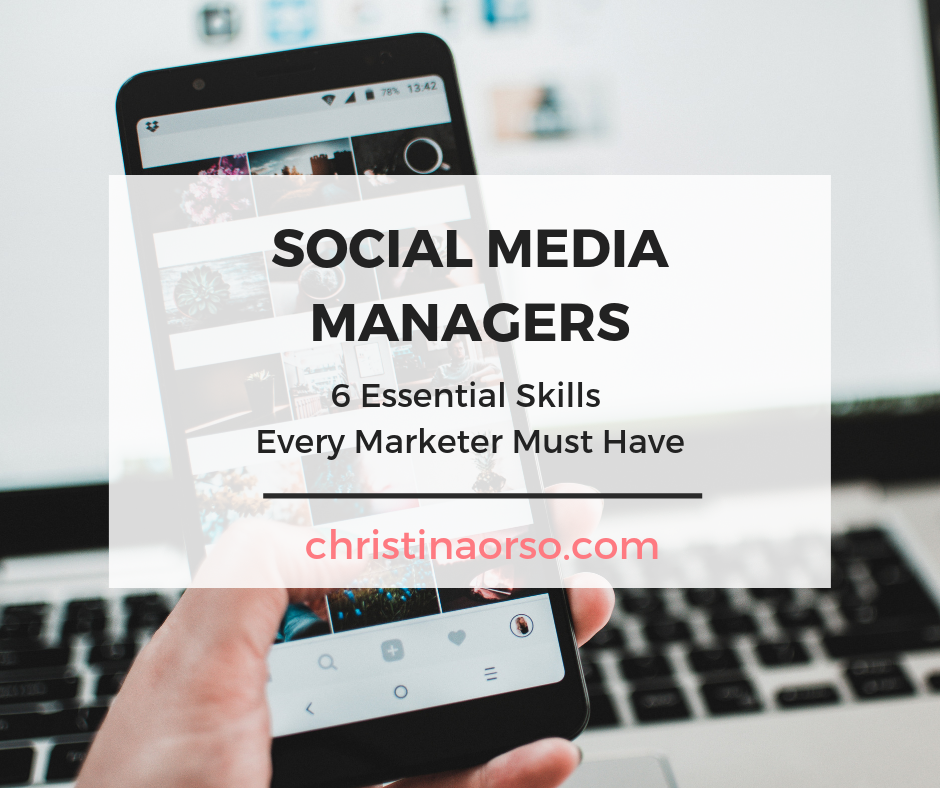
Before I started my company, I went over the pros and cons of leaving my full-time role to become an entrepreneur. I had always had at least one side hustle (sometimes multiple) and knew that I was fully capable of something bigger. My end goal was to combine all of my current clients and side hustles to be enough to take the leap. Having been on both sides, there are some major pros and cons to both being an employee or an entrepreneur. First I’ll go over a few things, then I’ll get into specifics about my own business and life.
Amount of Hours Worked
Employee: As an employee, your full-time job probably consists of around 40 hours a week. You go in, keep busy for 8 or so hours, and go home. You may be limited in the specific daily schedule you commit to work, ie 9-5 and your schedule is often set by your employer. On the flip side, having a structured schedule each week gives you a good idea of what’s ahead.
Entrepreneur: When you first start your business, you may put in 60-80 hours per week. But once you establish yourself and/or outsource tasks, you can greatly reduce the amount of hours you work. In addition, you may be able to greatly replace the income from a day job in less than 40 hours by charging a higher rate as a contractor. It all depends on how much you want to work and meeting your own needs.
Work/Life Balance
Employee: Typically as an employee, once you’re done with work you can clock out and go home. And often times you can forget about work completely once you’re out of the office. While this isn’t always the case, it’s easier to create a good work/life balance in a structured role.
Entrepreneur: It can be really difficult to get out of work mode, especially if you work from home. You’re always near your phone or computer, making it super tempting to check on things. But, as I mentioned above, you may get to work less hours than an employee and therefore get more free time with family and friends.
Work Stress
Employee: As an employee, my stress level was always pretty low. I knew what was expected of me, I knew when I could go above and beyond, and I knew how to keep my bosses happy. I didn’t worry about the daily operations of the business, but instead, fulfilling my own role.
Entrepreneur: When you first start out, you may be a one woman show. It can take time to build a team and adjust to outsourcing income. Projects can fluctuate and you always need to be working on multiple streams of income. You also wear many hats. You don’t just provide a product or service — you market, network, find suitable employees, and act as your own accountant. However, the direction of your business is all up to you.
Money
Employee: Your income is usually limited, unless you work on a bonus structure. You put in hours, and in return, get a paycheck for the same amount each week. You can move up the chain, but eventually your income is capped. On the plus side, you know those paychecks are coming and you don’t have to chase anyone down for your money.
Entrepreneur: The possibilities are endless. The money you bring in and the rate your business grows is all up to you. The sky really is the limit here. Lose the fear of not getting a paycheck and instead think about the multiple streams of income that will bring you so much more.
General Work Life
Employee: As an employee, you have bosses (sometimes multiple) and coworkers. Often times you are put on projects with coworkers that you may or may not like. This may be a struggle for someone who prefers to work on their own. On top of that, many employees put in their time and go home, especially if the extra mile isn’t going to get them anywhere.
Entrepreneur: It’s all up to you to earn your income. Nobody is going to earn it for you. It can be such a hustle in the beginning, and you may have a tough time balancing projects, taking on only what you can handle, but also fearing you may not grow if you don’t take on more.
My Honest Experience
Amount of Hours Worked: My first couple of months, I worked a ton. I had a couple big projects but was hustling to find lots of little projects to fill those voids and grow. During the summer, business slowed down. I got nervous! I remember telling my former boss and he assured me things always pick back up around September. And boy, did it pick up.
Work/Life Balance: I often struggle with this, especially given that I’m in the world of social media — which is 24/7. It’s so easy for me to open my laptop or grab my phone to see what I might be missing. Then I end up getting roped right back into something. I also really like to complete things, so I have a hard time putting my laptop away until I feel like something is finished. During the first couple months, I made sure to give myself a little time each day to completely unplug and not think or talk about work. It wasn’t easy. Eventually, around the six month mark, I made sure I had one day a week to mostly put work away. Now this isn’t to say I was working 90 hours a week; I just struggled with time blocking. After the first year, I really learned how to work in increments so that I wasn’t working all day long.
Work Stress: As I mentioned, the “stress” in the beginning was making sure I had enough of an income flow to make up for the full-time job that I had left. However, the general work stress greatly reduced as I was really focusing on the industries I loved and the type of work I enjoyed most. Being my own boss is also a huge part of why I know this was the best decision.
Money: One of my biggest concerns about leaving my full-time job was not getting a paycheck every 2 weeks. Looking back, this seems so silly. My former boss convinced me that I was basically already at the top where I could be in the company and that I could be making so much more working for myself. When I say the opportunities are endless, I mean it. Within 6 months of starting my business, my income surpassed the six-figure mark. A couple months after that, my income had actually doubled from when I was an employee and that’s where I am today.
General Work Life: This was, by far, the best decision I’ve made career wise. I loved what I did in my full-time role, but I really love what I do now. I choose which projects I want to work on, I pick which clients I want to work with, I decide how much or how little I want to work. There are certainly times where I ponder taking on a bunch more clients and hiring a team, but I truly love being a one-woman show. Never fear that you can’t grow as a single-owner business. Do what you love, and outsource the rest.
Take the risk, make the leap, and figure it all out as it comes. Enjoy the whole process.
 In a recent blog post, I touched on the importance of being financially ready to start your own business. But it goes much further than just having money saved up before leaving a full-time job. Here are a few things to know before giving up your job’s steady income to become a business owner.
In a recent blog post, I touched on the importance of being financially ready to start your own business. But it goes much further than just having money saved up before leaving a full-time job. Here are a few things to know before giving up your job’s steady income to become a business owner.

